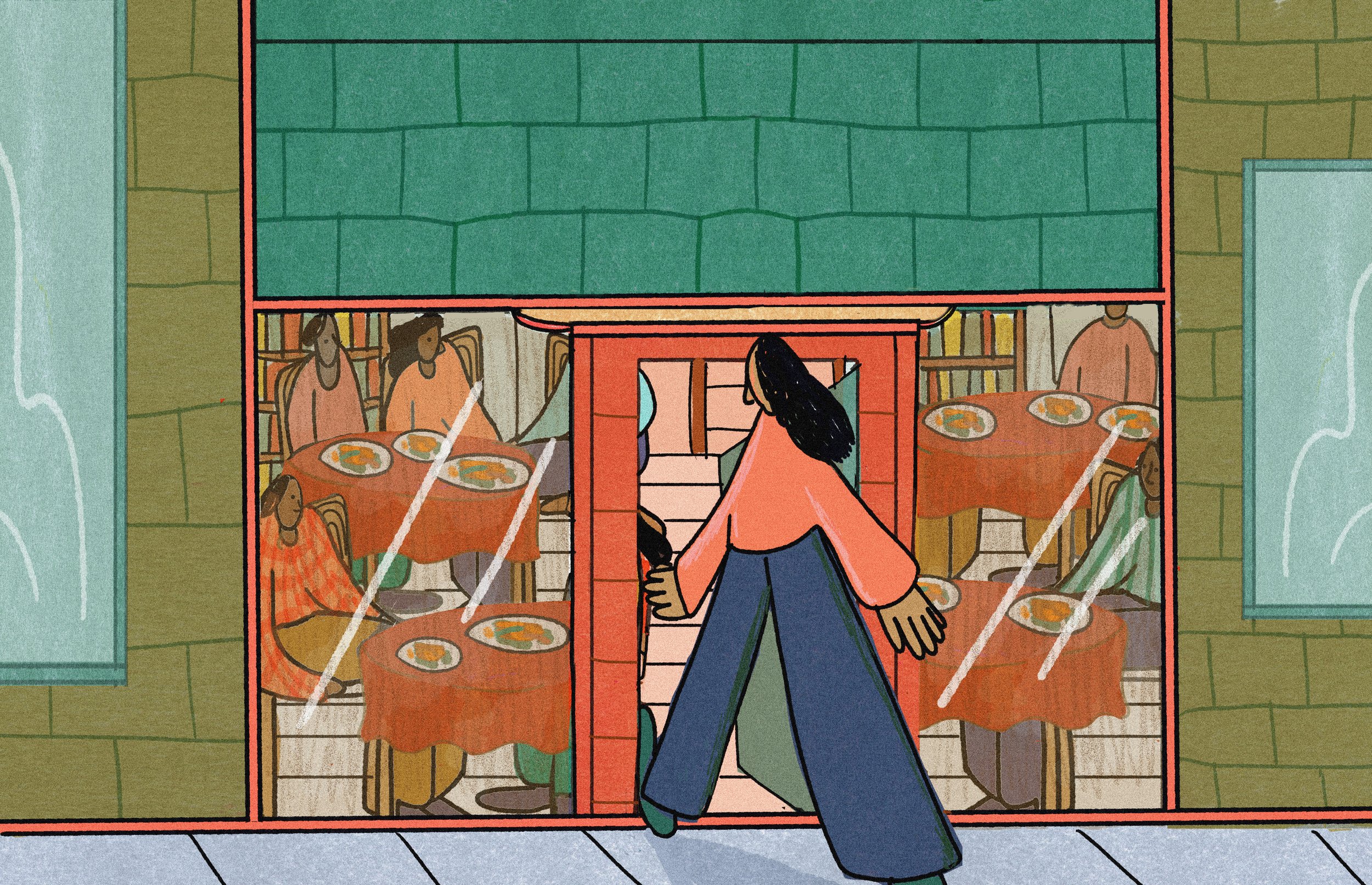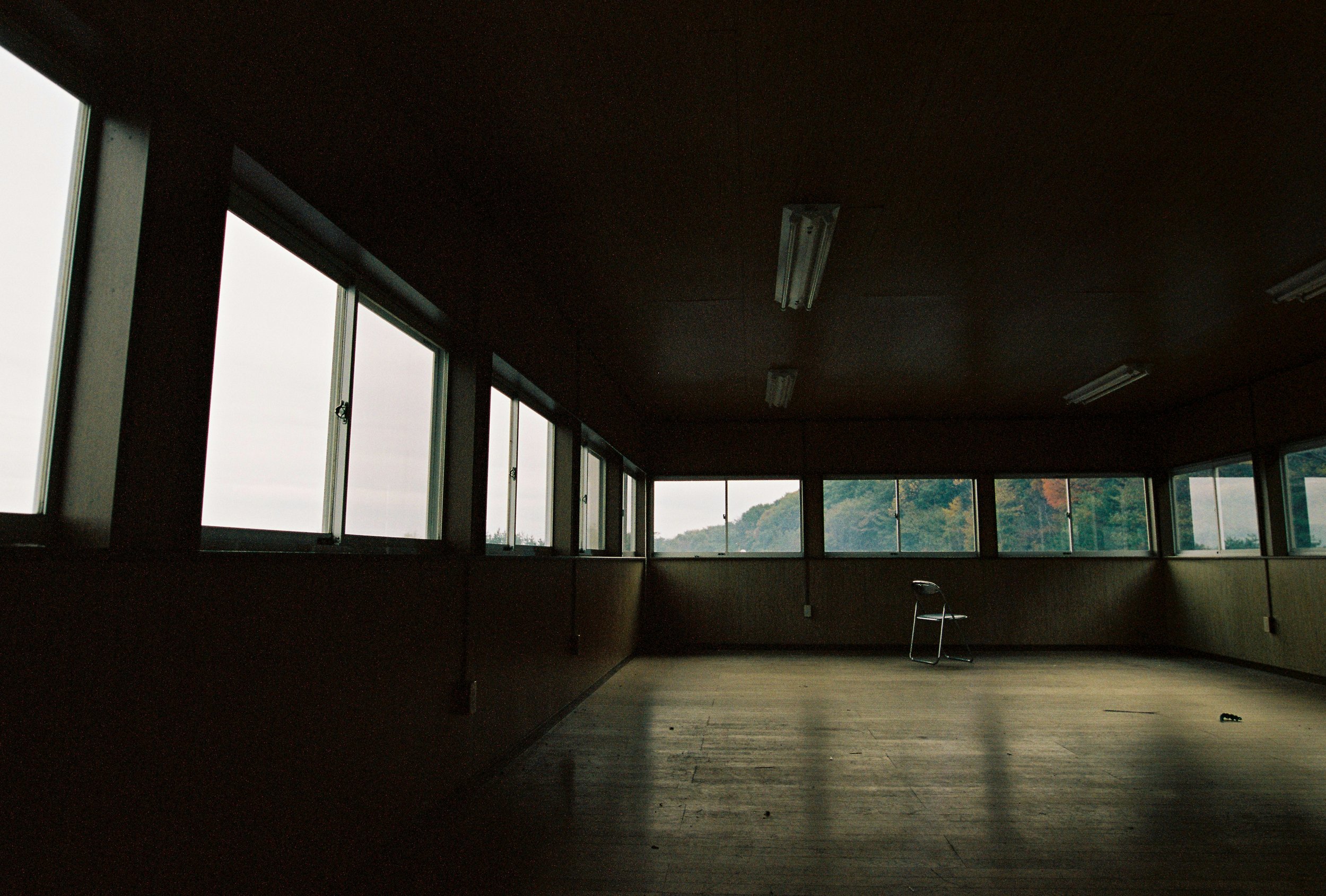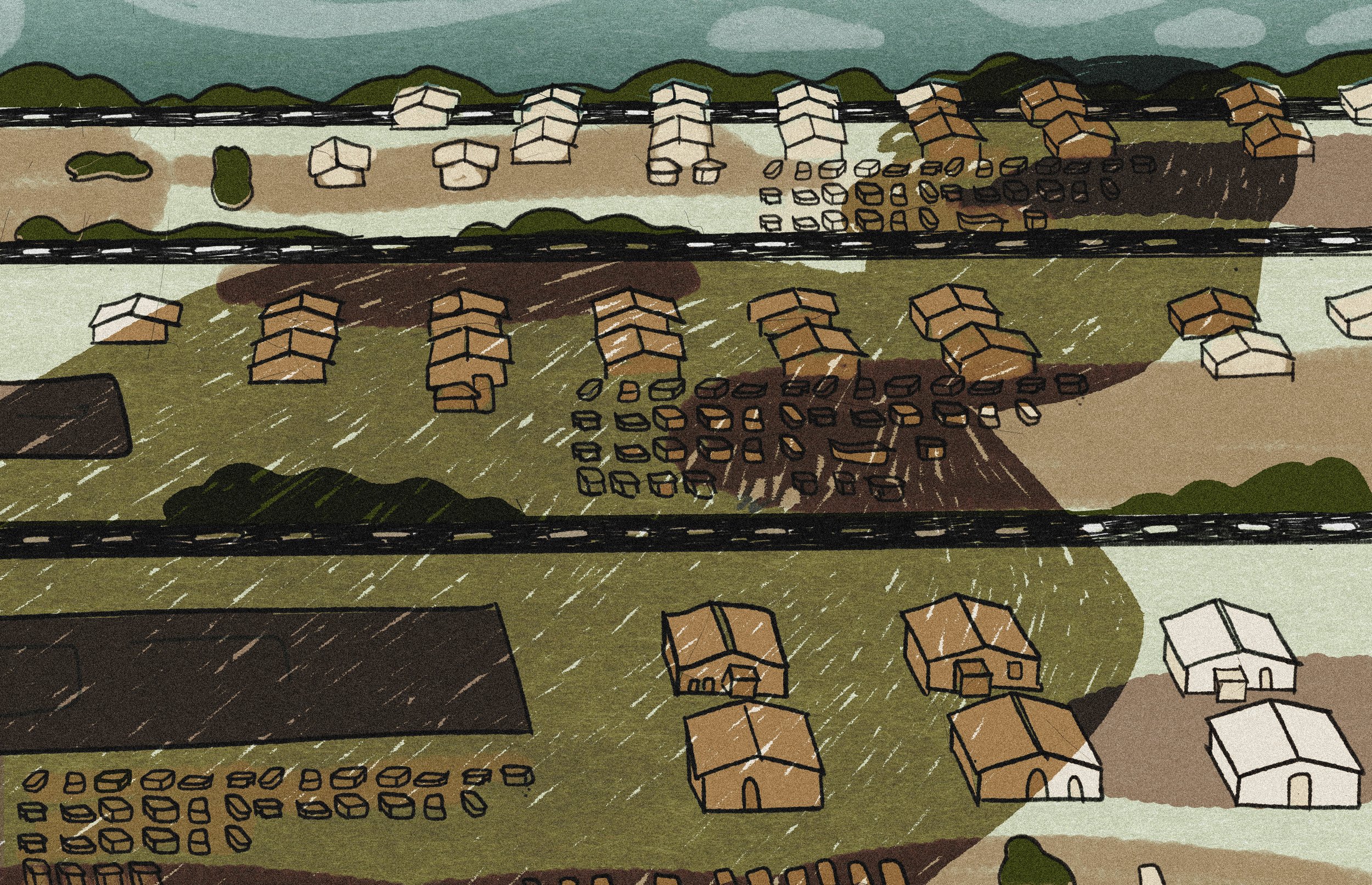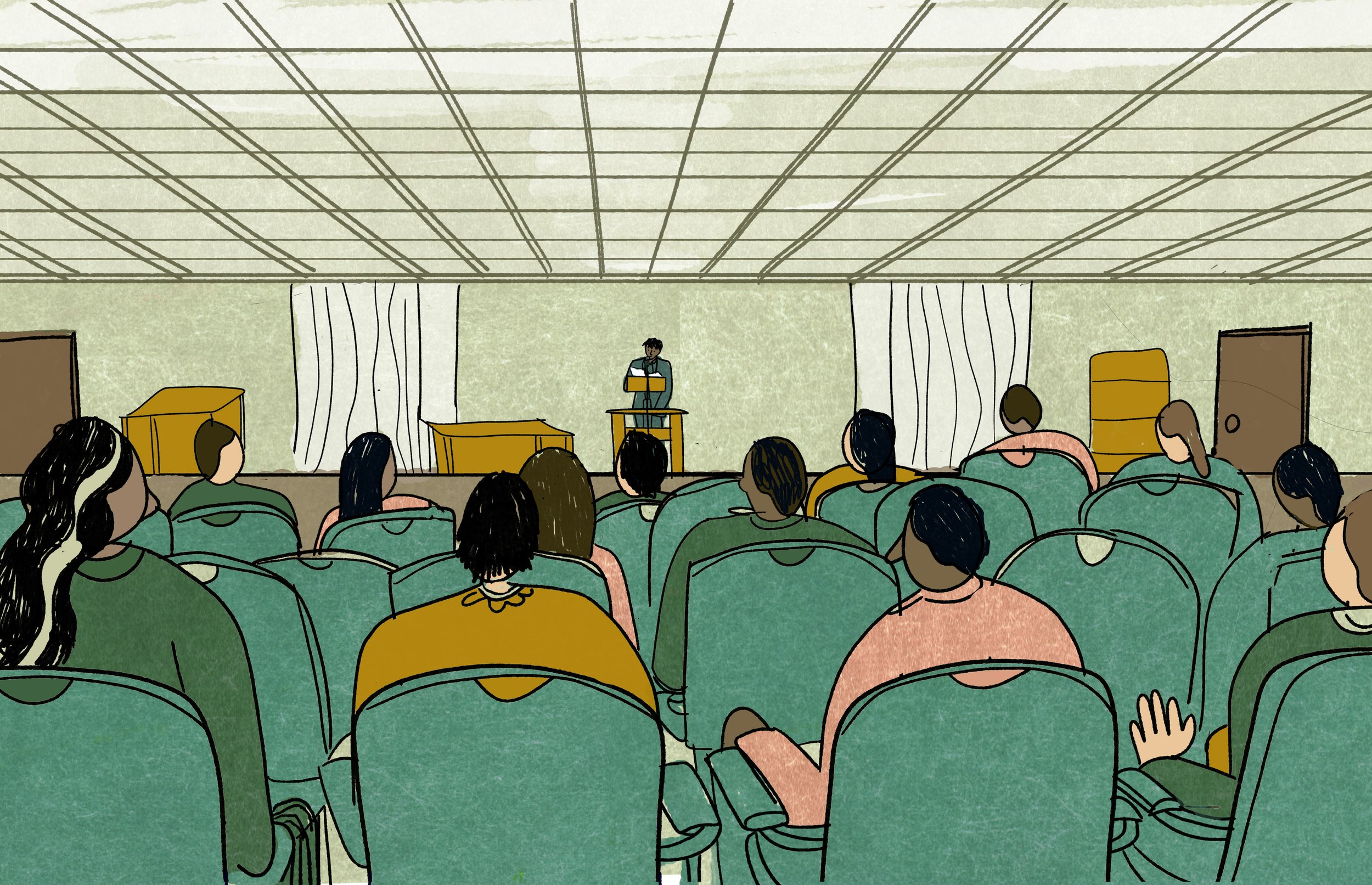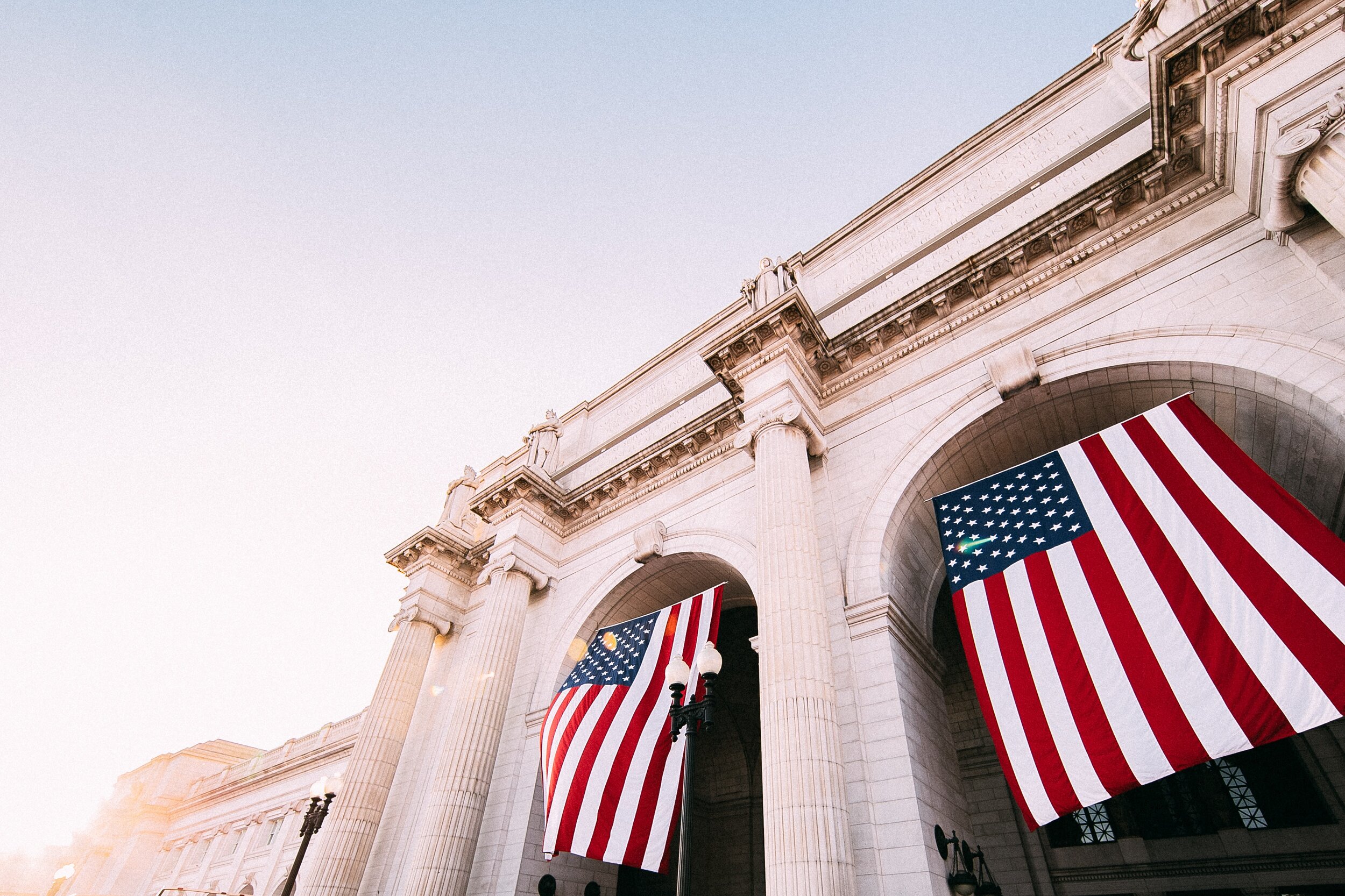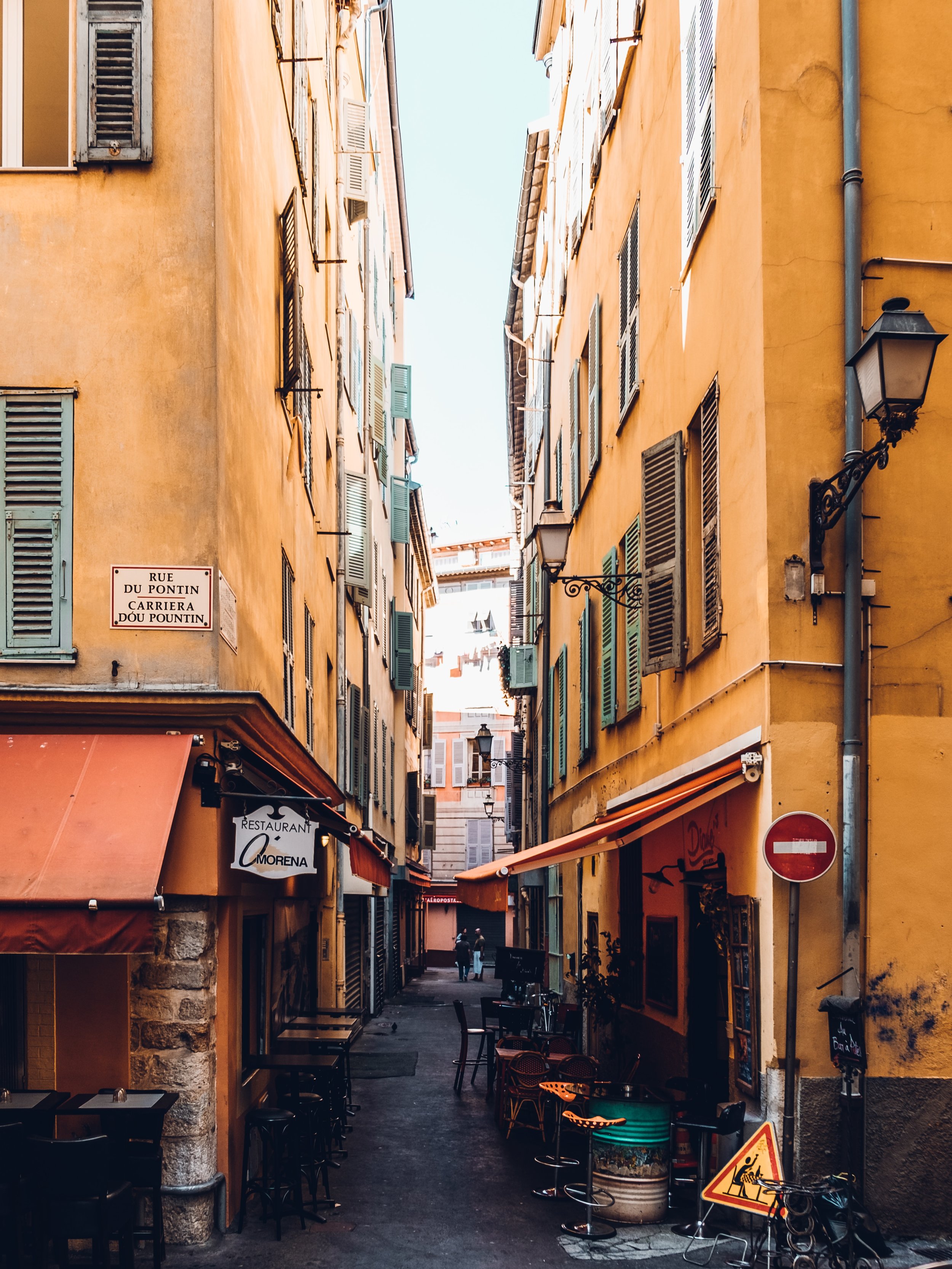All Along the Waterfront
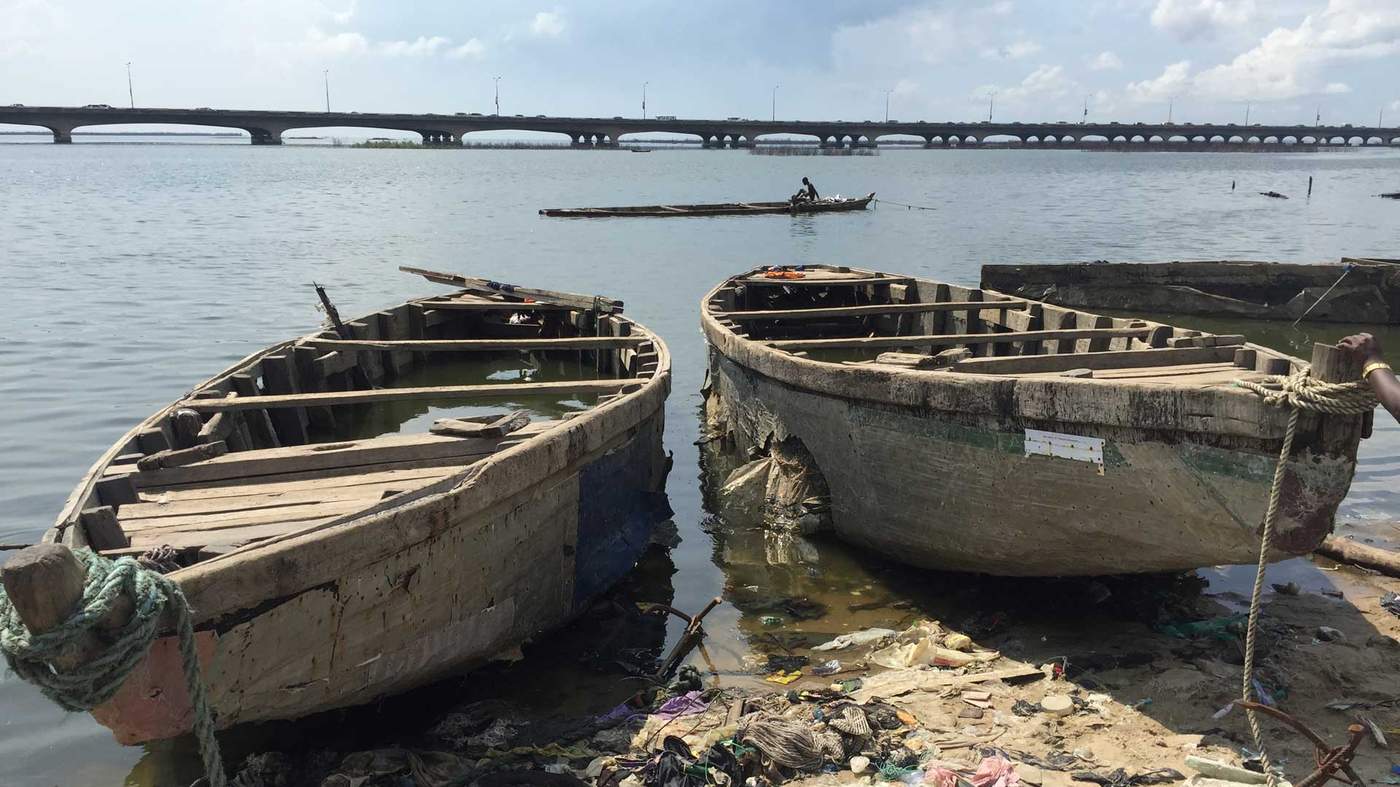
When Oluwatosin Adeshokan was commissioned by a Nigerian culture magazine to write about the origins of the small fishing villages of Lagos, he intended to report on their colorful origins. The real story, however, was about a cultural travesty: the demise of Nigeria’s waterfront communities, where working people’s homes were being razed to make way for luxury housing.
If Lagos feels like a hug, Ago Egun is a vicious kick to your face. But Lagos’ hug is the kind that ends with your arms twisted behind your back.
Getting to Ago Egun is a logistical nightmare. This floating village, four kilometers from the University of Lagos, is built on a foundation of dirt and waste. To get there, my friend Israel and I had to ditch our car, board a bus, ride two motorcycles and then a keke. Ago Egun feels different than what you might expect a neighbor of a vast city like Lagos to be. There are no tarred roads, no street lights, no historically faulty drainages. You have to cross muddy, unsolid ground for nearly thirty minutes to reach it. We walked this sludgy road, trying not to stain our pants. I was prepared—I wore a pair of flip flops. Israel, however, had suede shoes, which did not survive our journey.
Lagos, Africa’s largest city, consists of a mainland and a series of islands. A few years ago, there were over forty waterfront communities situated on the water between the Lagos lagoon and the Atlantic, all connected to the mainland by one or two roads. Some 300,000 of Lagos’ poorest people lived in these communities, many in makeshift homes elevated on stilts. They traveled by canoe and supported their families with fishing. Children swam in water inundated with plastics and personal waste. Unlike the inhabitants of mainland Lagos, the residents of the waterfront communities did not speak English or Yoruba. Instead, they spoke Eegun, an offshoot of Yoruba from the neighboring Republic of Benin, a country some 77 miles away. A few people spoke French as well.
“You see, Lagos always had a goal—to become a megacity, a world class city, a modern metropolis that Nigerians could feel proud to call home. But this dream comes at a cost.”
In October of 2017, then governor Akinwumi Ambode announced that the state would oversee the “demolition of all the shanties” around the creeks and waterways of Lagos, citing public health and safety concerns. We had seen this happen before in Otodo Gbame, another waterfront village, where more than 30,000 people had lost their homes and were forced to sleep in their wooden canoes.
You see, Lagos always had a goal—to become a megacity, a world class city, a modern metropolis that Nigerians could feel proud to call home. But this dream comes at a cost. People living in the waterfront communities lived below the poverty line, but on prime real estate land—land that the government could use to further Lagos' grand ambitions.
When Israel and I finally arrived at Ago Egun, the oddly familiar, stale smell of burning wood and roasting fish welcomed us. We recognized the odor from a bridge to the mainland, which demarcates the poor side of Lagos from the affluent one. At its liveliest, Ago Egun was like a party, with children frolicking in the makeshift streets, conversing in a complicated mix of French and Eegun. We saw that much had changed since we had last visited. There were fewer children playing, and even fewer men standing around, playing a game of draughts and talking about the government. The wooden canoes, sometimes enhanced with motors, that were once anchored to the pillars of the Ago Egun homes, were gone. This time, there was freshly poured beach sand that led to a huge gate with a shabbily hidden sign: “JETTY.” The sand, we later found out, was the foundation for the village’s future mansions. The new jetty project is an expanse of artificial land on the Lagos lagoon. Its presence had impeded the locals’ access to the water and to their ability to fish and provide for their families. The once bustling shantytown was a shadow of its former self.
Israel and I went to meet Felix Joseph, the baale, or local chief. He was shorter than Israel and me. He smiled with his chubby cheeks, slightly droopier than when we had last met. He recognized Israel from a previous visit when he had taken photographs of him in his house. Then, he remembered me. I had attempted to speak broken French with him and he obliged, correcting my missteps in Yoruba. He led us into the community hall as we exchanged jokes and he teased that we had grown fatter.
“Then there is the annual flooding of the city, which only gets more precarious with climate change and rising sea levels. Lagos might be permanently flooded in the near future.”
“I’m sorry, but I can not speak with you today,” he said to us. “Nobody will talk to you from this community. You journalists, you come and you take and you take. But when we asked you to help us speak to the government you did nothing and now we can no longer fish here.”
With most boats grounded in Ago Egun, the baale was rightfully upset. As Otodo Gbame was being destroyed, the people of Ago Egun were told they were next. The community had hoped that speaking to journalists and activists would deter the government from taking away their livelihood and homes. But this government has no regard for its citizens.
However, the baale was wrong about journalists and activists. When the people of nearby Otodo Gbame waterfront community were evicted in 2017, their plight landed on the front pages of Nigerian newspapers, magazines, and websites. Human rights groups gave statements, and writer and activist OluTimehin Adegbeye gave a TED Talk about the situation. The government was ordered by the state high court to stop the demolition and allow people to return to their homes. The government, however, claimed that the community harbored thieves and therefore justified its evictions by saying they were just curbing crime. They defied the court’s order. Today at Otodo Gbame, a luxury housing estate exists in its stead and many of its former residents live in Ago Egun.
“They said they were going to demolish us next. So, we gave interviews, we allowed people to take pictures.” the baale said to us. “But look over there, they dredged to build a jetty and a new housing estate. Already, people have started moving to Makoko”—a nearby waterfront community next up in the government’s crosshairs.
In 2018, Nigeria was named the poverty capital of the world. To improve their fortunes, some young men from Ago Egun and Otodo Gbame moved to mainland Lagos in search of work, but high rent and a repressive government forced them to resort to squatting in half-constructed buildings while working as janitors or security guards, often working two, three, and even four jobs. Meanwhile, Lagos has constant traffic problems caused by bad roads, and police who randomly arrest male citizens. Then, there is the annual flooding of the city, which only gets more precarious with climate change and rising sea levels. The ambitious Eko Atlantic project—a planned city being built alongside the mainland on sand reclaimed from the Atlantic Ocean—will be safe, as it will be well above sea level, but the waters will have to find somewhere to go. Lagos might be permanently flooded in the near future.
“We have no power, so we can’t do anything,” the baale told us. “People were shot when they were trying to evacuate Otodo Gbame. But, one day, the people living in Lagos will fight back.”
For Baale Joseph, this was a very uncomfortable snag. “I don’t know what I will do. But, I need to take care of my family, children and community. This is my most important job.”
We were invited to have lunch with the baale and his family before we left—garri soaked in water and fish—but we declined. Even then, the baale’s words about people deciding to revolt against the government sounded familiar. A few months earlier, while I was researching a story about the increase in the Lagos state housing tax, a source told me that when people in Lagos reach a certain point of abject poverty, the only logical thing for them to do will be to march to the government house and confront the officials.
In Otodo Gbame, there will be no more Christmas for the children who swim like they were born into the water. Over forty diverse communities with links to both Nigeria and Benin are disappearing. In their place arise developments that most of Lagos’ people can not afford. The slow demise of Ago Egun is Lagos, and Nigeria, eating her young.
ABOUT THE AUTHOR
Oluwatosin Adeshokan is a freelance journalist based in Lagos. He has written about development, culture, finance and conflict for the Los Angeles Times, Roads & Kingdoms, Quartz, TRT World, Popula and PRI. Before journalism, he worked as an analyst in a tax and finance advisory in Lagos. He is currently learning about data science and is looking to become an academic focusing on public policy and funding for terrorism. He can be found on Twitter and Instagram.
Header photo from thewhistler.ng; Author photo by Chidiebere Ogu



